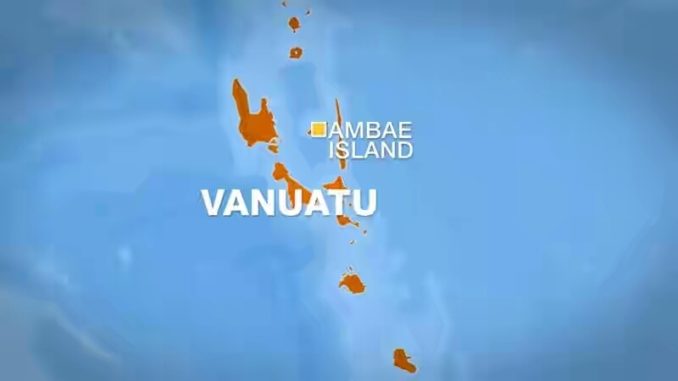
More than 7,000 people have been moved to emergency shelters in Vanuatu as a volcano in the south Pacific Ocean archipelago threatens to erupt, government officials say.
Vanuatu, a cluster of more than 80 islands and 260,000 people, declared a state of emergency on Tuesday following signs the volcano – known as Monaro – is becoming increasingly active.
Following weeks of rumbling the volcano, at the centre of the northern island of Ambae, had reached “moderate eruption state”, the Vanuatu Meteorology and Geo-Hazards Department said.
The department warned of “flying rocks and volcanic gas”, which could affect villages up to 6.5km away, after raising the volcanos alert level from three to four.
Schools on the island – which is more than 1,750km east of northern Australia – have been closed and up to 70 percent of its population will be evacuated, according to Vanuatu’s National Disaster Management Office.
The last time Monaro erupted was in 2005.
Supplies strained
Shedrack Welegtabit, the organisation’s director, said on Monday that 15 emergency sites have been set up but the large-scale evacuation has strained supplies.
“We are in the dry season and with the ash contaminating some supplies our biggest concern right now is getting water to those who have been evacuated,” he said.
An eruption could threaten the island’s long-term food sources, international charity Save the Children has said, Vanuatu being one of the world’s poorest countries.
“People on Ambae rely on a subsistence lifestyle and so the big fear is not just the issue of displacement but the condition of crops and vegetation that people will go home to,” Georgia Tacey, Save the Children’s Vanuatu country director, said.
It is the second volcano to have caused an alert in the Asia-Pacific region at present.
More than 57,000 people have fled a volcano on the Indonesian island of Bali amid fears of an imminent eruption.












